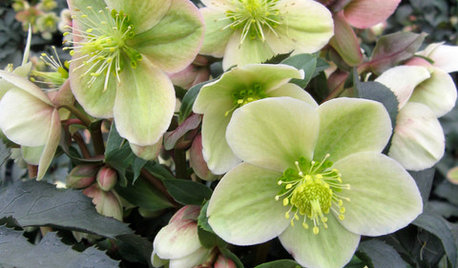At what point can hybrids be considered a new species?
nick_b79
20 years ago
Related Stories

POOLSWe Can Dream: 7 Things to Consider Before Investing in an Outdoor Spa
Check out these tips and tricks for adding a luxurious outdoor spa to your landscape
Full Story
COFFEE WITH AN ARCHITECTClassification of the Design Species
A scientific analysis of the diverse variety of species found in the world of design
Full Story
LANDSCAPE DESIGN5 Reasons to Consider a Landscape Design-Build Firm for Your Project
Hiring one company to do both design and construction can simplify the process. Here are pros and cons for deciding if it's right for you
Full Story
LANDSCAPE DESIGNConsider a Plant as Living Sculpture
If traditional garden art isn’t really your thing, plant living art instead
Full Story
LANDSCAPE DESIGNSmall Garden? You Can Still Do Bamboo
Forget luck. Having bamboo that thrives on a wee plot just takes planning, picking the right variety, and keeping runners in check
Full Story
GARDENING GUIDES4 Ways Gardens Can Go Beyond Aesthetic Beauty
Our landscapes can play an even more meaningful role if we rethink their purpose
Full Story
GARDENING GUIDESYes, You Can Grow an Edible Garden on a Hot, Dry Site
Difficult garden spots don’t need to deter you from planting trees, herbs and other delicious food plants
Full Story
FLOWERSRudbeckia Mania: Go Beyond Black-Eyed Susan in the Garden
Branch out from typical nursery fare, with lesser-known Rudbeckia species that have delightfully unexpected features
Full Story
WINTER GARDENINGGreat Design Plant: Gold Collection Hellebores Perform Like Stars
Exciting colors, longer bloom times, forward-facing flowers ... These hybrids leave old hellebores in the dust
Full Story
MAN SPACESA Los Angeles Basement Becomes a Cozy Man Cave
Raw storage space in a Hollywood writer's home is transformed into a masculine home office hybrid
Full Story





MacDaddy
maineman
Related Professionals
70037 Landscape Architects & Landscape Designers · Arnold Landscape Architects & Landscape Designers · Prairie Ridge Landscape Architects & Landscape Designers · Newcastle Landscape Architects & Landscape Designers · Sahuarita Landscape Architects & Landscape Designers · Centereach Landscape Contractors · Indianapolis Landscape Contractors · Kaysville Landscape Contractors · Seven Hills Landscape Contractors · Vacaville Landscape Contractors · Arnold Carpenters · Deerfield Beach Carpenters · Westmont Carpenters · Natick Fence Contractors · Oregon City Fence ContractorsMacDaddy
Sparaxis
MacDaddy
Sparaxis
MacDaddy
Sparaxis
MacDaddy